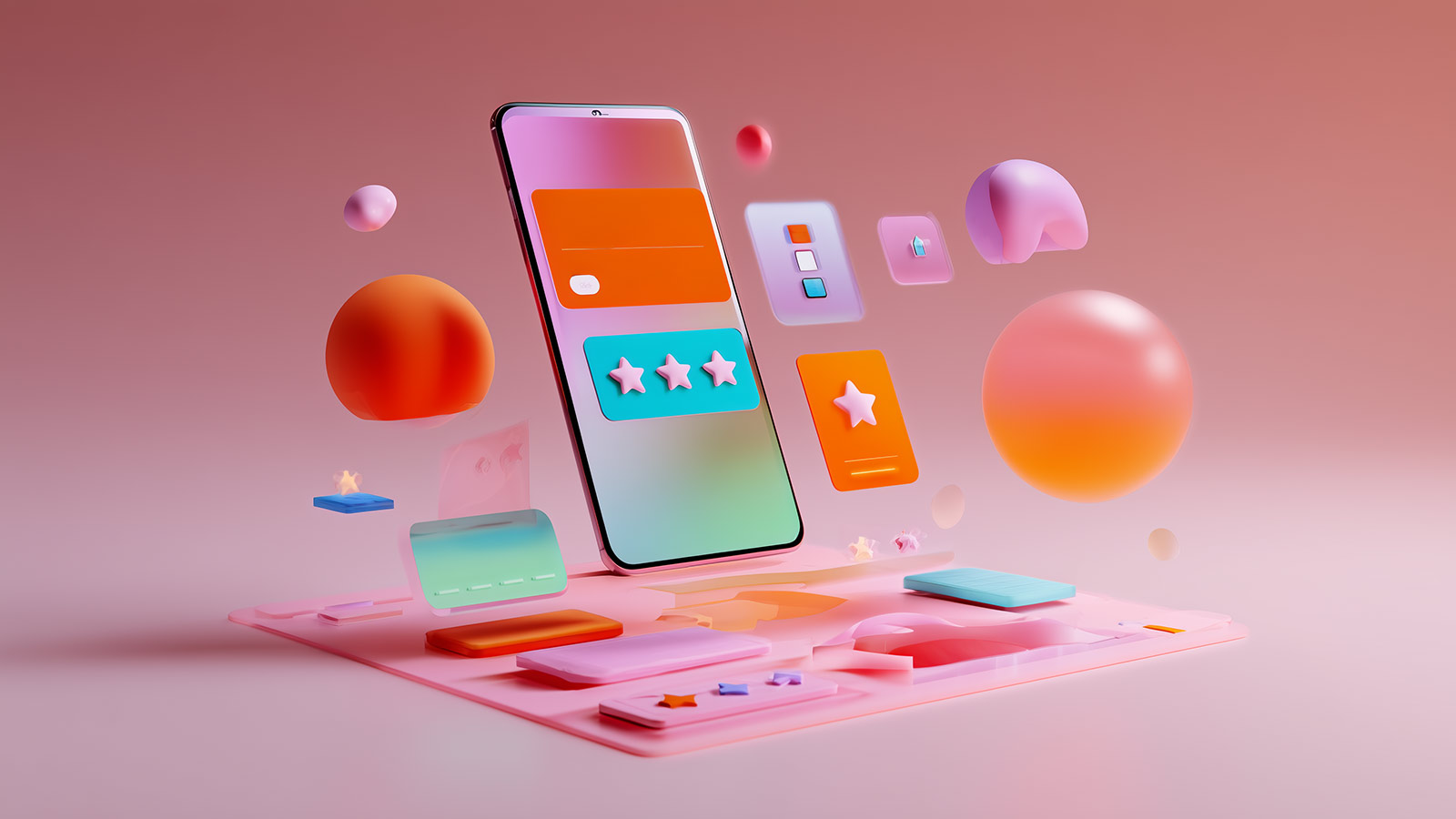AI and Big Data Fueling Personalized Health Journeys in Mobile Apps


Introduction
AI and big data are transforming mobile apps, creating personalized health journeys for users in digital health. This transformation is powered by advanced data analytics, real-world user insights, and innovative platforms like ContextSDK, which leverage real-world context to optimize user interactions in health apps. Through insights into user activity, preferences, and engagement patterns, health apps can deliver customized experiences that drive better health outcomes and user satisfaction. Explore how AI-driven insights are shaping mobile health apps by providing highly relevant user interactions.
With AI and big data, health apps have the capability to understand individual needs in real-world settings. Using over 200 mobile signals, tools such as ContextDecision and ContextPush allow for precise timing of user prompts and notifications, enhancing user engagement without compromising experience. This article dives into the impact of AI and big data on mobile health, exploring the potential of platforms like ContextSDK to facilitate a seamless, personalized health journey.
The Role of AI and Big Data in Personalizing Health Journeys
AI and big data provide the foundation for personalizing health experiences in mobile apps. These technologies work together to process large datasets and deliver real-world insights into individual habits, preferences, and health needs. By using AI-driven analytics, health apps can track user behavior and generate actionable insights, creating a tailored approach to health management. According to NCBI, AI in health apps enables proactive care through data insights that predict user needs, improving overall health outcomes.
One example is ContextSDK’s tools, which enable apps to capture real-world context and adjust user engagement based on activity. By analyzing data points like battery levels and local motion data, ContextSDK helps health apps deliver notifications that align with the user’s daily routine, enhancing relevance and personalization.
Real-World Context: A New Approach to User Engagement in Health Apps
Health apps increasingly rely on real-world data to personalize user experiences. Real-world context encompasses information about user surroundings, such as activity level, time of day, and even screen brightness, which provides insight into user behavior and preferences. ResearchGate emphasizes the importance of real-world data in creating user-centric health apps, as it allows for non-disruptive, highly relevant interactions.
Platforms like ContextPush and ContextDecision enable this approach by processing data directly on the device, preserving user privacy while delivering personalized health prompts. For instance, a fitness app using ContextSDK could detect a user's active state during the morning and send workout reminders. By using AI to analyze real-world context, health apps can achieve an optimal balance of engagement and user satisfaction, creating a seamless health journey. Discover more about how real-world context is transforming app engagement.
Enhancing Health Outcomes with Predictive Analytics
1. Using Predictive Insights to Anticipate Health Needs
Predictive analytics in health apps allow for proactive care by identifying patterns that might indicate health risks or needs. AI can analyze behavioral data to predict actions like missed medications, changes in activity, or potential signs of illness. According to Tiga Health, predictive analytics can empower users to take preventive steps, improving health outcomes through timely interventions.
ContextSDK’s ContextDecision tool allows apps to determine the best moments for engagement, providing actionable insights based on real-world context. By analyzing over 200 signals, ContextSDK can detect trends and predict user needs, supporting proactive care. This functionality is crucial in apps focused on chronic health management or wellness, as timely notifications and insights can support daily health routines. Learn more about the role of predictive analytics in enhancing user experiences.
2. Personalized Recommendations Based on Behavioral Data
AI-powered apps can analyze behavioral data to offer personalized health advice, such as dietary suggestions, sleep improvements, or mental wellness tips. For instance, a health app might analyze user activity data to suggest a morning workout routine. ScienceDirect highlights the role of behavioral insights in delivering relevant health recommendations, improving adherence to health goals.
ContextSDK helps apps understand real-world context, allowing for precise personalization of health tips and recommendations. By capturing real-world data on user engagement, ContextSDK offers a privacy-safe solution for delivering relevant health content. Explore further to see how behavioral insights impact user experiences in mobile health.
Privacy and Security in AI-Driven Health Apps
1. On-Device Data Processing for User Privacy
As health apps collect sensitive data, ensuring user privacy is essential. On-device data processing, as enabled by ContextSDK, prevents personal information from leaving the device, addressing privacy concerns. This approach aligns with stringent privacy regulations like GDPR and CCPA, ensuring data security. ContextSDK processes over 200 signals without transferring data to external servers, reinforcing user trust and promoting ethical app development. NCBI notes that on-device data processing is key in privacy-centric health apps, where users expect control over their data.
ContextSDK’s focus on privacy enables health apps to personalize engagement without compromising data security. By emphasizing on-device processing, ContextSDK ensures that health insights are both relevant and safe, building user confidence. Learn more about how privacy-focused AI platforms support ethical health solutions.
2. Compliance with Data Protection Regulations
Compliance with data protection laws is crucial for health apps that rely on AI-driven insights. Health apps must ensure that all data collection and processing are aligned with GDPR, CCPA, and other privacy standards. By adhering to these regulations, apps maintain transparency and user trust, supporting long-term growth. ScienceDirect highlights that apps prioritizing compliance can strengthen user relationships.
ContextSDK’s on-device data processing helps health apps meet privacy standards by ensuring no personal identifiable information (PII) is collected or stored. This privacy-first approach supports compliance while enabling apps to deliver meaningful health insights. Explore how compliance reinforces user trust and engagement in health applications.
ContextSDK: Enhancing Personalized Health Journeys with Real-World Data
ContextSDK, a leading on-device AI startup, is a powerful tool for health apps, providing personalized user engagement through real-world data insights. By using over 200 signals, ContextSDK identifies optimal moments for health prompts and notifications, improving the user journey. The platform captures user context, such as battery level and motion data, to provide actionable insights that align with each user’s daily routine. This privacy-centric approach ensures no personal data is transferred to external servers, fostering user trust. ContextSDK supports health apps in delivering personalized experiences without sacrificing privacy, creating a seamless health journey.
In addition, ContextPush helps apps determine the ideal times for user prompts, supporting timely interactions that improve conversion rates and user satisfaction. For example, a mental wellness app using ContextSDK might detect when a user is most likely to benefit from relaxation prompts, enhancing engagement. By enabling context-aware interactions, ContextSDK drives both user retention and satisfaction, making it a valuable asset in personalized health apps. Learn more about ContextSDK for improving mobile health journeys.
Conclusion: The Future of Personalized Health Journeys with AI and Big Data
The combination of AI and big data is redefining the landscape of mobile health, enabling apps to create personalized health journeys that resonate with users. From real-world data insights to predictive analytics, AI offers tools for tailoring health experiences to individual needs, driving better health outcomes and user satisfaction. By using platforms like ContextSDK, health apps can gain access to actionable insights that enhance user engagement while respecting privacy, supporting ethical data practices. Apps that prioritize personalization, privacy, and compliance will be best positioned for long-term success in the competitive health app market. For further resources, visit ContextSDK’s blog to explore more about AI-driven health engagement.
Relevant Links
- ContextSDK Overview
- ContextSDK Blog
- Decision Product
- Push Product
- Unlock the Power of AI in Marketing
- The Context Revolution
- Maxim Gorin on Intelligent Mobile Apps
- ResearchGate on AI in Health Apps
- ScienceDirect on Health Apps and Data Privacy
These resources provide additional insights into how AI and big data fuel personalized health journeys, showcasing the role of platforms like ContextSDK in enhancing user engagement and satisfaction in mobile health apps.






